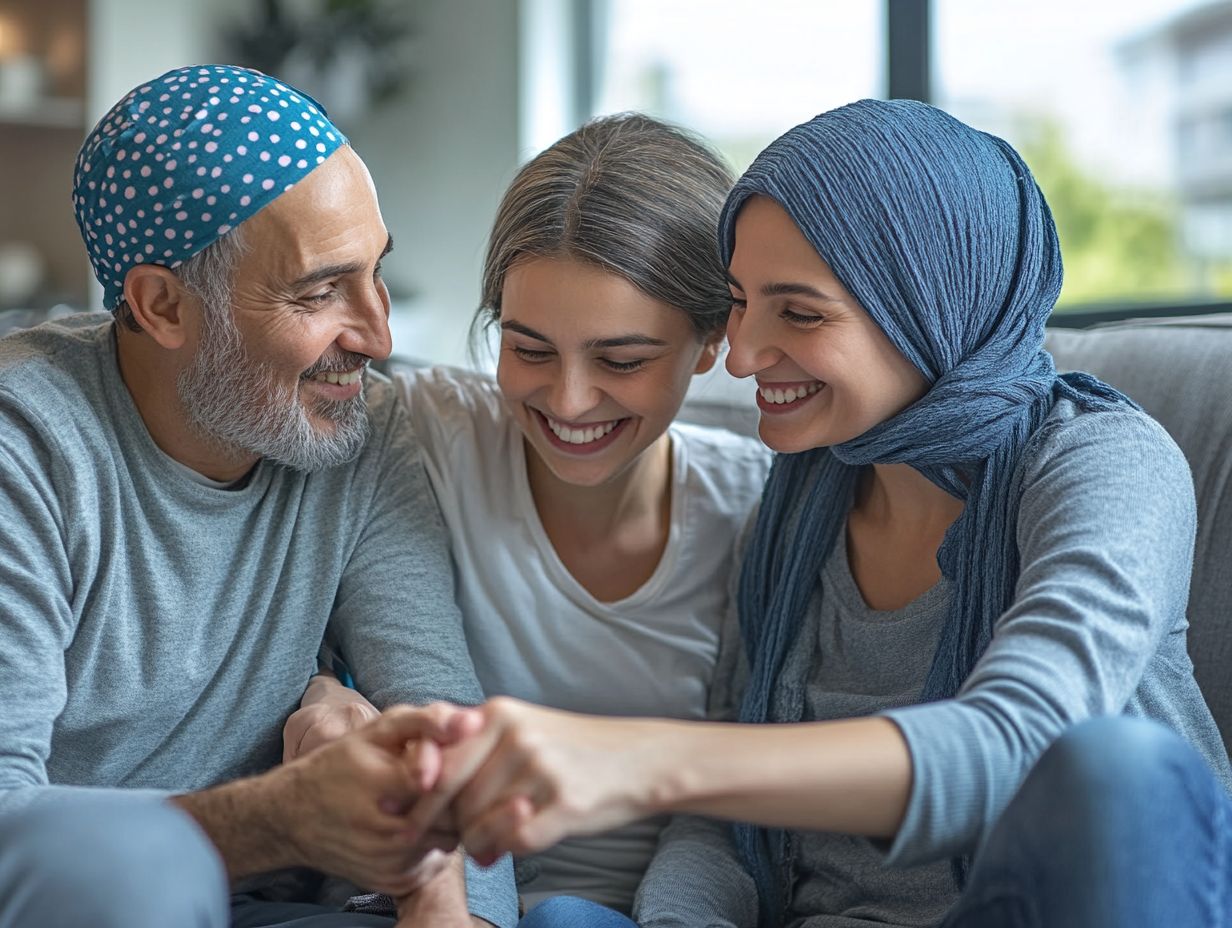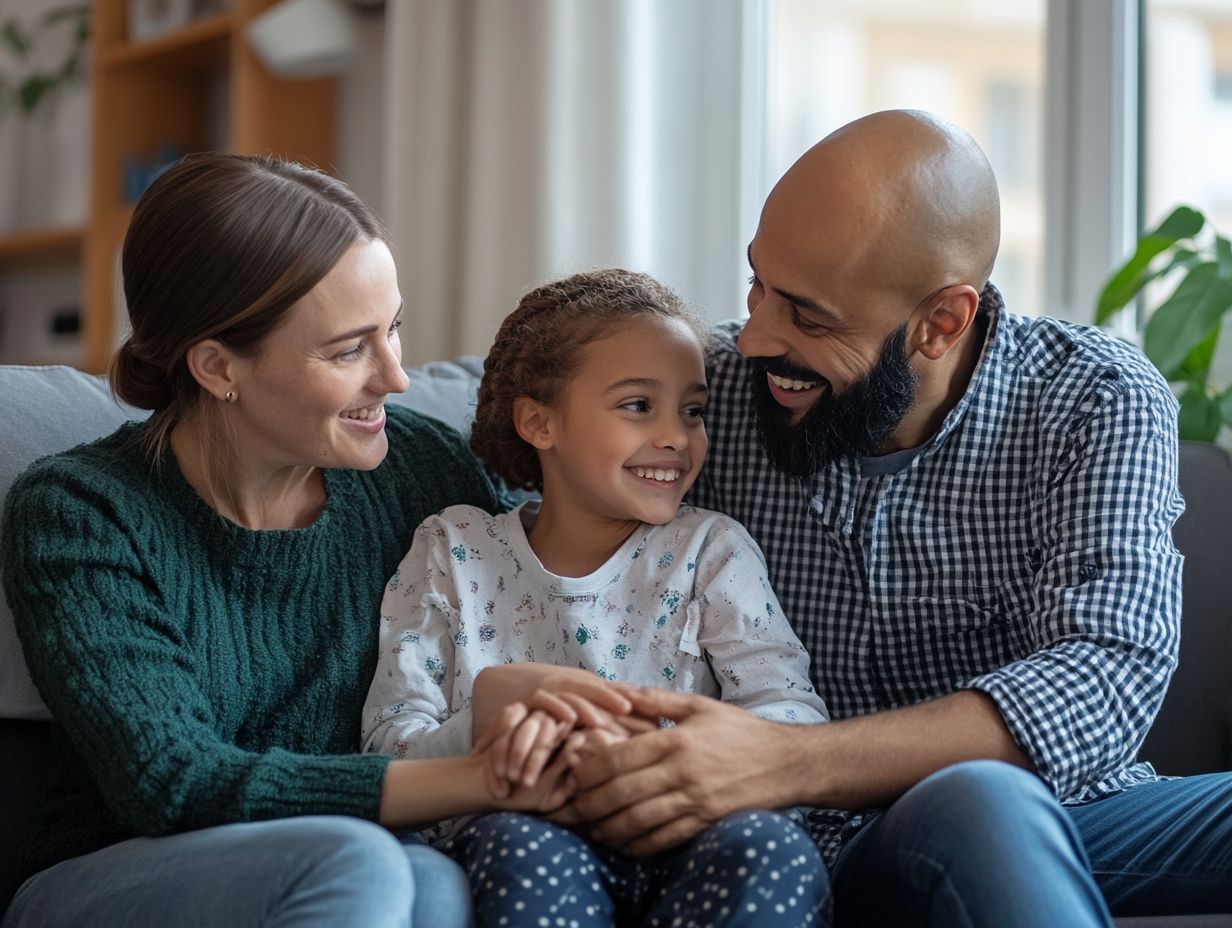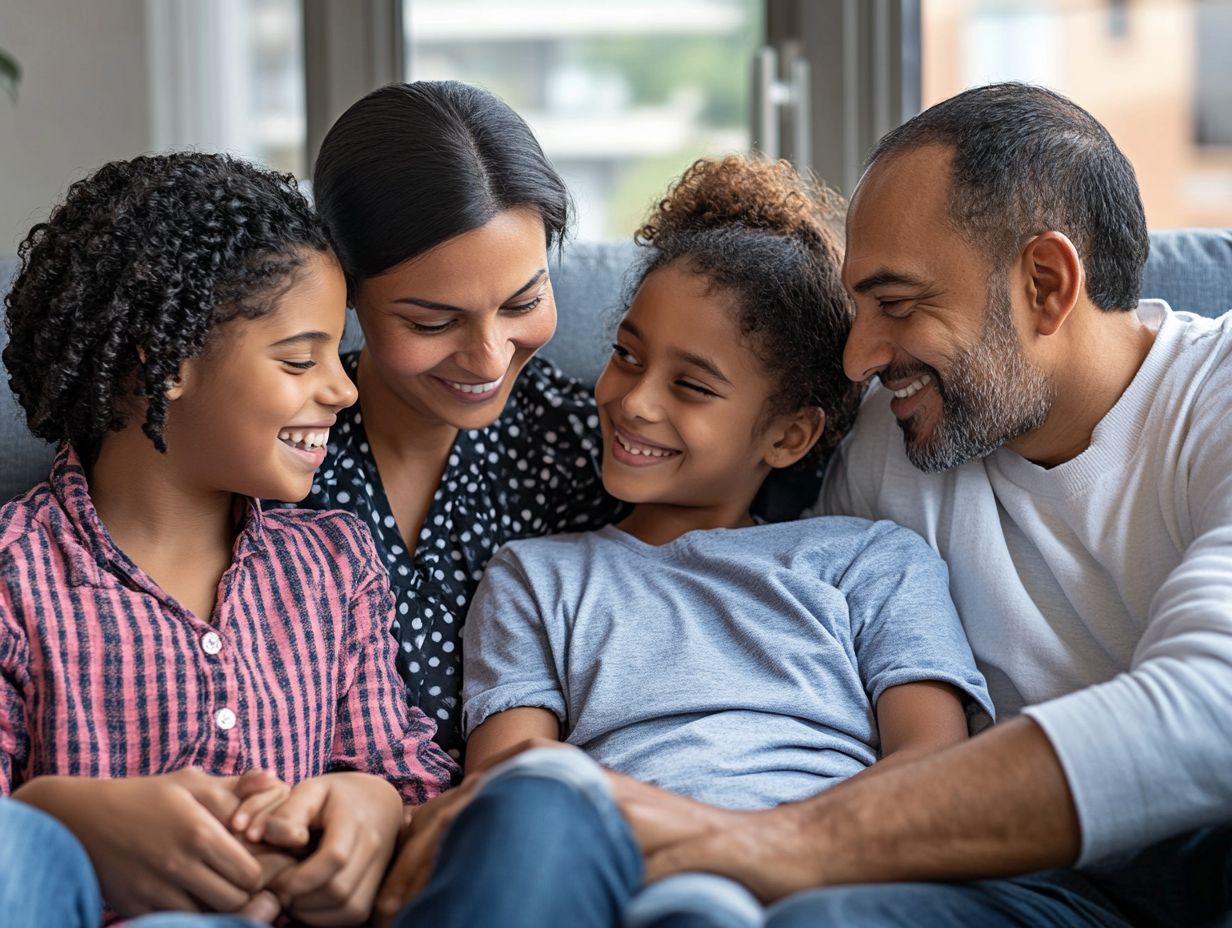Supporting a family member with cancer involves navigating emotional, practical, and psychological challenges. Cancer’s impact extends beyond the patient, affecting family members through emotional distress, increased responsibilities, and financial burdens. Understanding the emotional and psychological effects of cancer on family dynamics is crucial for providing effective family support, especially when dealing with the feelings about cancer and treatment decisions.
Family members play a vital role by offering practical support, such as:
- Transportation to medical appointments
- Meal preparation
- Household assistance
coupled with emotional support through regular communication.
Effective communication, including active listening, emotional validation, and normal conversations, helps strengthen family bonds and improve the patient’s quality of life. Equally important is self-care for caregivers, enabling them to manage stress and prevent burnout by addressing caregivers’ needs through:
- Support groups
- Setting boundaries
- Practicing mindfulness
- Engaging in community activities
Leveraging available resources, such as support groups and educational materials, can further empower family members to support their loved ones effectively while maintaining their own well-being.
Key Takeaways:
The Impact of Cancer on Family Members

The impact of cancer on family members includes emotional distress, increased caregiving responsibilities, and financial burdens.
Cancer affects family members by causing anxiety, emotional exhaustion, and mood changes due to the stress of supporting a loved one.
The caregiving role often leads to physical and mental strain, impacting the family’s overall well-being.
Emotional and Psychological Effects
Cancer’s emotional and psychological effects on family members include anxiety, sadness, and mood fluctuations.
These effects stem from fear about the future and potential loss.
Mental health support fosters resilience and aids in coping with these challenges.
Expressing emotions and seeking professional help are essential strategies for managing these effects.
Ways to Support a Cancer Patient
Ways to support a cancer patient, a loved one fighting cancer, include:
- Providing transportation to medical appointments
- Preparing nutritious meals
- Assisting with household chores and gardening
- Offering emotional support through regular communication and listening skills
Family members and friends can help manage daily activities and offer companionship, enhancing the patient’s independence and emotional support.
Support, including practical and emotional assistance for daily activities, can alleviate patient stress and improve their quality of life.
Practical and Emotional Support Strategies for Cancer Patients
Practical support strategies for cancer patients, which are essential for enhancing the patient experience, include:
- Cooking nutritious meals
- Assisting with medical appointments and medications
- Managing daily activities and household chores
Emotional support strategies, crucial for handling emotions and mood changes, involve:
- Active listening
- Being present during difficult moments
- Fostering security and a positive outlook
Both practical and emotional support enhance the quality of life for cancer patients.
Communication Tips for Family Members

Effective communication for family members involves listening actively, speaking openly, and creating a supportive environment for cancer patients.
Family members should encourage expression of emotions, ask open-ended questions, and provide reassurance.
These communication strategies help in understanding the patient’s needs and strengthen family bonds.
Effective Communication Techniques
Effective communication techniques for families with cancer patients include active listening, emotional validation, and light-hearted conversations.
Active listening involves fully engaging with the patient’s thoughts and feelings about cancer without interruption, fostering better communication with doctors and health care providers.
Emotional validation creates a safe space where the patient feels understood, fostering a stronger bond.
Light-hearted conversations about everyday topics can lift the patient’s spirits and provide moments of normalcy.
Being emotionally present and responsive strengthens the relationship and reinforces the patient’s sense of security and belonging.
Self-Care for Family Members
Self-care for family members involves practices to manage stress and prevent burnout while supporting a loved one with cancer.
Self-care practices include:
- Setting boundaries
- Seeking support groups
- Practicing mindfulness
- Ensuring adequate rest and nutrition
Effective self-care helps family members maintain resilience and provide better support to cancer patients.
Managing Stress and Burnout
Managing stress and preventing burnout in caregivers involves setting boundaries, scheduling self-care breaks, and seeking support networks.
Caregivers can reduce stress by establishing clear boundaries with patients and family.
Regular breaks for meditation, exercise, or hobbies renew energy and improve mental clarity.
Joining support networks helps share burdens and resources, benefiting both caregivers and patients.
Resources for Family Members and Caregivers

Resources for family members and caregivers of cancer patients include support groups, educational materials from organizations like NCI and MD Anderson, and counseling services to address mental health concerns.
Support groups offer a platform for sharing experiences and finding encouragement from others facing similar challenges.
Educational materials help family members understand cancer better, while counseling services provide emotional support.
Support Groups and Other Resources for Cancer Care
Support groups provide emotional support, practical guidance, and a sense of community for family members of cancer patients by offering spaces to share experiences and learn from others.
These resources include:
- In-person meetings at hospitals or community centers
- Online forums for those who prefer digital interaction
- Peer-led sessions tailored to various needs, including relaxation techniques
Support groups help families cope by providing a community where participants share experiences, fostering empathy and understanding.
Frequently Asked Questions
1. How can family members best support a cancer patient?
Family members can best support a cancer patient by providing emotional support, helping with daily tasks, and advocating for their loved one’s medical needs.
2. What type of emotional support can family members offer to a cancer patient?

Family members can offer emotional support by listening, providing words of encouragement, and being a source of positivity and hope for the patient.
3. How can family members help with daily tasks for a cancer patient?
Family members can help with daily tasks by cooking meals, running errands, and taking care of household chores, allowing the patient to focus on their treatment and recovery.
4. Should family members participate in a cancer patient’s medical appointments?
It can be helpful for family members to participate in medical appointments, as they can provide support and ask questions on behalf of the patient. However, it is ultimately up to the patient’s preference.
5. How can family members advocate for a cancer patient’s medical needs?
Family members can advocate for a cancer patient’s medical needs by keeping track of important information, asking questions, and communicating any concerns or needs to the medical team.
6. Is it important for family members to take care of their own well-being while supporting a cancer patient?
Yes, it is crucial for family members to take care of their own well-being while supporting a cancer patient. This can include seeking support from others, taking breaks, and practicing self-care.





